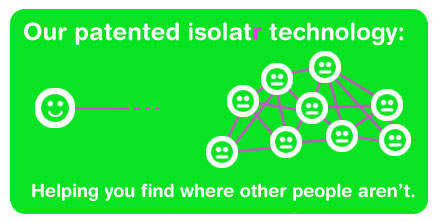There’s an email going around that I’ve received a few times already from former colleagues. In this email there are testimonials of employees that discuss certain pains inside the company policies or that show the ridiculous ways of thinking of some executive people. Reading these comical situations might teach you some things about ‘how not to manage’ and ‘how not to treat your employees’. Apparently the quotes were collected for some sort of competition, but I don’t know which one or where…
- “As of tomorrow, employees will only be able to access the building using individual security cards. Pictures will be taken next Wednesday and employees will receive their cards in two weeks.”
(Fredrick Dales at Microsoft Corp. in Redmond, WA.) - “What I need is a list of specific unknown problems we will encounter.”
(Lykes Lines Shipping) - “E-mail is not to be used to pass on information or data. It should be used only for company business.”
(Accounting manager, Electric Boat Company) - “This project is so important, we can’t let things that are more important interfere with it.”
(Advertising/Marketing manager, United Parcel Service) - “Doing it right is no excuse for not meeting the schedule.”
- “No one will believe you solved this problem in one day! We’ve been working on it for months. Now, go act busy for a few weeks and I’ll let you know when it’s time to tell them.”
(R&D supervisor, Minnesota Mining and Manufacturing/3M Corp.) - “My Boss spent the entire weekend retyping a 25-page proposal that only needed corrections. She claims the disk I gave her was damaged and she couldn’t edit it. The disk I gave her was write-protected.”
(CIO of Dell Computers) - “Teamwork is a lot of people doing what I say.”
(Marketing executive, Citrix Corporation) - My sister passed away and her funeral was scheduled for Monday. When I told my Boss, he said she died on purpose so that I would have to miss work on the busiest day of the year. He then asked if we could change her burial to Friday. He said, “That would be better for me.”
(Shipping executive, FTD Florists) - “We know that communication is a problem, but the company is not going to discuss it with the employees.”
(Switching supervisor, AT&T Long Lines Division) - We recently received a memo from senior management saying: “This is to inform you that a memo will be issued today regarding the memo mentioned above.” (Microsoft, Legal Affairs Division)
- One day my Boss asked me to submit a status report to him concerning a project I was working on. I asked him if tomorrow would be soon enough. He said, “If I wanted it tomorrow, I would have waited until tomorrow to ask for it!” (New business manager, Hallmark Greeting Cards)
- “As director of communications, I was asked to prepare a memo reviewing our company’s training programs and materials. In the body of the memo in one of the sentences I mentioned the “pedagogical approach” used by one of the training manuals. The day after I routed the memo to the executive committee, I was called into the HR director’s office, and told that the executive vice president wanted me out of the building by lunch. When I asked why, I was told that she wouldn’t stand for perverts (pedophiles?) working in her company. Finally, he showed me her copy of the memo, with her demand that I be fired-and the word “pedagogical” circled in red. The HR manager was fairly reasonable, and once he looked the word up in his dictionary and made a copy of the definition to send back to her, he told me not to worry. He would take care of it. Two days later, a memo to the entire staff came out directing us that no words, which could not be found in the local Sunday newspaper could be used in company memos. A month later, I resigned. In accordance with company policy, I created my resignation memo by pasting words together from the Sunday paper.” (Taco Bell Corporation)



